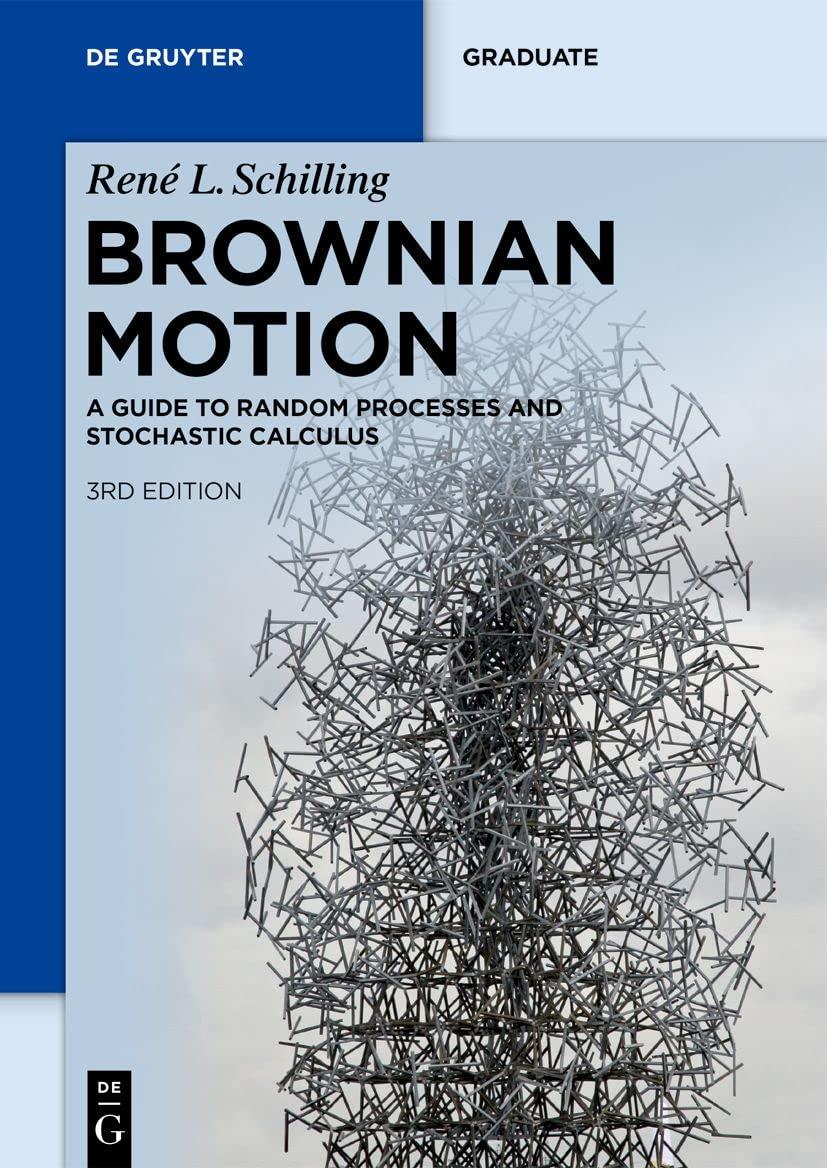Let (delta_{j}, j geqslant 1), be iid Bernoulli random variables with (mathbb{P}left(delta_{j}= pm 1ight)=1 / 2). We
Question:
Let \(\delta_{j}, j \geqslant 1\), be iid Bernoulli random variables with \(\mathbb{P}\left(\delta_{j}= \pm 1ight)=1 / 2\). We set
\[S_{0}:=0, \quad S_{n}:=\delta_{1}+\cdots+\delta_{n} \quad \text { and } \quad X_{t}^{n}:=\frac{1}{\sqrt{n}} S_{\lfloor n tfloor}\]
A one-dimensional random variable \(G\) is Gaussian if it has the characteristic function \(\mathbb{E} e^{i \xi G}=\exp \left(i m \xi-\frac{1}{2} \sigma^{2} \xi^{2}ight)\) with \(m \in \mathbb{R}\) and \(\sigma \geqslant 0\). Prove that
a) \(X_{t}^{n} \xrightarrow{d} G_{t}\) where \(t>0\) and \(G_{t}\) is a Gaussian random variable.
b) \(X_{t}^{n}-X_{s}^{n} \xrightarrow{d} G_{t-s}\) where \(t \geqslant s \geqslant 0\) and \(G_{u}\) is a Gaussian random variable. Do we have \(G_{t-s}=G_{t}-G_{s}\) ?
c) Let \(0 \leqslant t_{1} \leqslant \ldots \leqslant t_{m}, m \geqslant 1\). Determine the limit as \(n ightarrow \infty\) of the random vector \(\left(X_{t_{m}}^{n}-X_{t_{m-1}}^{n}, \ldots, X_{t_{2}}^{n}-X_{t_{1}}^{n}, X_{t_{1}}^{n}ight)\).
Step by Step Answer:

Brownian Motion A Guide To Random Processes And Stochastic Calculus De Gruyter Textbook
ISBN: 9783110741254
3rd Edition
Authors: René L. Schilling, Björn Böttcher





